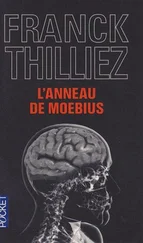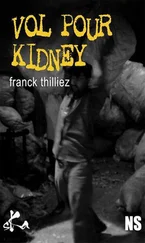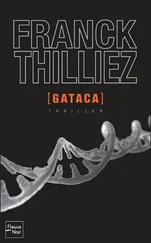“I’m going back to my room to get my things. I could give the room up—what do you say?”
“You know the administration and how people gossip. Better we have separate bills. Don’t you think so?”
“Yeah, I suppose you’re right.”
They had just left the Delta hotel. Like two perfect tourists, they walked slowly, side by side, heading toward the convent of the Gray Sisters, which, according to the map they’d been handed at reception, was less than a mile away. Without talking about what had happened the night before, they turned onto Rue René-Lévesque and moved forward among the awe-inspiring towers of corporate headquarters. They finally arrived at a wide path protected by a locked gate.
After they had identified themselves on the intercom, the gate opened to let them in. The noise of traffic soon faded into silence, the crests of the skyscrapers disappeared, yielding to a graveled path bordered by gardens. At the far end stood the convent, once the general hospital of Montreal. It was shaped like an H, and in the middle of it rose the Roman chapel, the cross at its summit gleaming in the sun. Two long gray wings spread out on either side. The Guy Wing housed the community and the Saint Matthew Wing welcomed the elderly, the infirm, and the orphaned. Four floors, hundreds of identical windows, an icy architectural rigor… Lucie could easily imagine the ambiance that must have reigned in such a place in the fifties. Discipline, poverty, self-sacrifice.
They silently skirted the dark brick building. In front of an entrance to the Guy Wing, they ran into the mother superior of the Gray Sisters. Framed in black and white, her face was harsh, leathery like a host. She made an attempt to smile at them, but a Christlike dolor drew her features taut.
“The French police, you said? What can I do for you?”
“We’d like to speak with Sister Marie du Calvaire.”
The mother superior’s features tightened further.
“Sister Marie du Calvaire is more than eighty-five years old. She’s suffering from arthritis and spends most of her time alone, in bed. What is it you want with her?”
“To ask some questions about her past. About the 1950s, to be exact.”
The nun kept an impassive face. She hesitated.
“This is not about trouble with the Church, I trust?”
“Absolutely not.”
“You’re in luck. Sister Marie du Calvaire has an excellent memory. There are certain things you never forget.”
She invited them inside. They walked down cold, dark corridors, with high ceilings and closed doors along the side. There were whispers; a couple of distant shadows vanished like fluttering handkerchiefs. A muffled noise vibrated from somewhere. Christian chants.
“Has Sister Marie du Calvaire always lived with you, Mother?” asked Sharko, almost in a whisper.
“No. First she left us in the early fifties, under strict orders. She joined the congregation of the Sisters of Charity at Mont Providence for several years, before coming back here.”
Mont Providence … Lucie had already seen that name in the archives. She reacted immediately.
“So she worked at the school that was turned into a psychiatric hospital by order of the Duplessis government.”
“Indeed. A hospital that ended up taking in as many lunatics as those of sound mind. Sister Marie du Calvaire worked there for several long years. At the expense of her own health.”
“And why did she return here to you?”
The mother superior turned around. Her eyes shone like flames from a candle.
“She disobeyed orders and fled Mont Providence, my daughter. For more than fifty years, Sister Marie du Calvaire has been a fugitive.”
The nun’s room was unadorned to the point of destitution: gray stone walls, a bed, a chair, a prayer bench with a Bible resting on it. The sole decorations were limited to a pewter crucifix on the wall above the bed, an armoire stuffed with books, and a clock. A small, high oval window filtered a wan light. The old woman was sitting on top of the bedsheets, feet together, hands folded on her chest, and eyes to the ceiling.
The mother superior leaned toward her and whispered something in her ear, then returned to the two detectives. Sister Marie du Calvaire slowly pivoted her head toward them. Her eyes were veiled: a fine white film, through which one could still make out the color of the ocean.
“I’ll leave you alone,” said the mother superior. “You’ll find your way out easily.”
She disappeared without another word, shutting the door behind her. Sister Marie du Calvaire stood up with a grimace and walked like an old turtle toward a glass of water, which she drank calmly. Her black robe fell to the ground, making it look as if she were floating. Then she returned to her bed and sat down, propping her pillow against the wall.
“It will soon be time for prayers. Whatever it is you want, I would ask you to be brief.”
Her hoarse voice sounded like paper being crumpled. Lucie came forward.
“In that case, we’ll come straight to the point. We’d like to ask you about the little girls you took care of in the early fifties. Alice Tonquin and Lydia Hocquart, among others. And also about Jacques Lacombe and the doctor who came with him.”
It was as if the sister had stopped breathing. She brought her callused hands to her chest. Behind her cataracts, her irises appeared to dilate.
“But… why?”
“Because even today, people are committing murder to protect what your eyes have seen,” Sharko picked up, leaning on the prayer bench.
In the ensuing silence, they could hear the voices of nuns singing in the distance.
“How did you find me? No one has ever come to talk about that ancient history. I am no one. Hidden from the world. I haven’t been outside these walls in more than fifty years.”
“Even so, your name is on the roster of your community. It was never supposed to leave here, but since your convent is scheduled to close, the records were transferred to the national archives.”
The old woman’s mouth opened slightly; she caught her breath after inhaling several times. Lucie had the sensation her pupils were dilating still further, summoning the lights of a banished time.
“Please don’t worry. We’re not here to denounce anything or put your former actions on trial. We’re simply trying to understand what happened to those girls at Mont Providence Hospital.”
The sister lowered her head. Swaths of white cloth concealed her face, leaving visible only a shadowy presence.
“I remember Alice and Lydia very well. How could I ever forget them? I took care of them, in the orphans’ ward of this convent, before moving to Mont Providence because of ‘staffing needs.’ I thought I’d never see my little girls again, but two years later they showed up there, at Mont Providence, along with ten other girls from La Charité… The poor lambs thought they were simply changing institutions, as so often happened at the time. They were used to it. They had come by train, all smiles, happy and carefree, the way you can be at that age.”
She punctuated her monologue with long, heavy silences. The memories slowly rose to the surface.
“But once inside Mont Providence, they soon realized what was in store for them. The cries and screams of the insane mixed in with the religious chants. The bright faces of the newcomers mingled with the ravaged features of the mentally retarded. At that point, those girls understood they would be staying in that place for good. With a stroke of the pen, some doctor working for the state had turned them overnight from perfectly normal orphans into mental defectives. And all for financial reasons, because mental patients made the government more money than illegitimate children. And we, the nuns, were required to treat them as such. We had to… do our duty.”
Читать дальше












